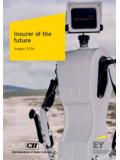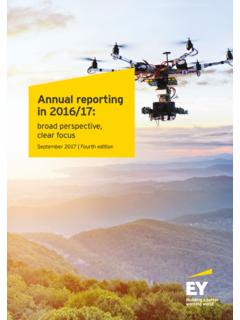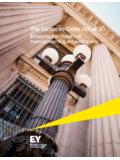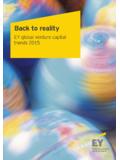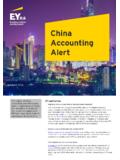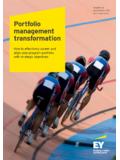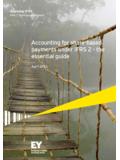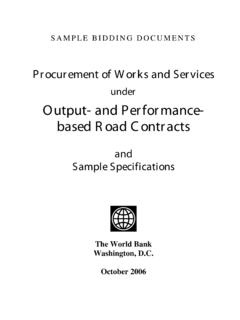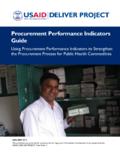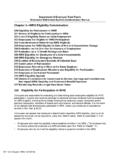Transcription of IFRS 2 Share-based payment The essential guide
1 IFRS 2 Share-based payment The essential guide (updated March 2009)IFRS 2 Share-based payment : The essential guide March 20092An overview of IFRS 2 Share-based paymentShare- based payment awards (such as share options and shares ) are a key issue for executives, entrepreneurs, employees, and directors. This guide gives an overview of IFRS 2 Share-based payment (IFRS 2 or the Standard) and related interpretations IFRIC 8 Scope of IFRS 2 and IFRIC 11 Group Treasury Share Transactions. A glossary of terms relating to Share-based payments is at the end of this to IFRS 2 IFRS 2 was issued in February 2004 and prescribes the measurement and recognition principles for all Share-based payment awards. IFRS 2 applies to transactions with employees and third parties, whether settled in cash, other assets (relatively uncommon, but for example, gold) or equity instruments.
2 The Standard was recently amended with respect to vesting conditions and cancellations which became effective on 1 January 2009. The International Accounting Standards Board (IASB) is currently drafting an amendment with respect to group cash-settled awards. IFRS 2 is one of the more challenging accounting standards since it involves complex valuation issues and, as described below, is sometimes counter-intuitive. The general principle of IFRS 2 is that an entity recognises an expense for goods or services (or an asset, if the goods or services received meet the criteria for recognising an asset) with the credit entry recognised either in equity or as a liability (depending on the classification of the Share-based payment award).
3 The definitions of equity and liability in IFRS 2 are very different from those used in IAS 32 Financial Instruments: Presentation and IAS 39 Financial Instruments: Recognition and Standard requires entities to recognise all Share-based payment awards in the financial statements based on fair value when the goods and services are received, which is determined at the grant date for Share-based payments issued to employees. As Share-based payment awards have become a larger component of employee and executive compensation (for example, in the Silicon Valley technology companies in the late 1990s), standard-setters came to believe that Share-based payment awards are an integral component of a total compensation package.
4 As such, they concluded that an entity should recognise an expense for Share-based payments , just as it does for cash compensation. 3 After much debate, the IASB settled on a grant date model. Under the grant date model in IFRS 2, an entity measures the fair value of a Share-based payment award issued to an employee on the grant date. The entity does not adjust the fair value afterwards (even if it becomes more or less valuable or does not ultimately vest), unless the award is modified. Frequently, this results in an entity recognising an expense even if the employee receives no benefit. Thus, the Standard is somewhat counter-intuitive, as the accounting pendulum has swung from recognising no expense for awards that do have value, to frequently recognising expense for awards that ultimately do not have value.
5 Although this situation is far from ideal, we believe that the current model is preferable to its predecessor, in which entities recognised no expense. We explore some of the basic concepts, including the grant date model, of IFRS 2 IFRS 2 encompasses:Equity-settled Share-based payment transactions in which the entity receives goods or services and as consideration for equity instruments of the entity ( , the grant of shares or share options to employees)Cash-settled Share-based payment transactions or liability awards in which the entity receives goods or services and incurs a liability based on the price (or value) of the entity s shares or other equity instruments of the entity as consideration ( , the grant of share appreciation rights to employees, which entitle the employees to future cash payments based on the increase in the entity s share price)
6 Share-based payment transactions with cash alternatives in which the entity receives goods or services and either the entity or the supplier of those goods or services (the counterparty) has a choice of settling the transaction in cash, other assets, or equity instrumentsIFRS 2 is not restricted to transactions with employees. For example, if an external supplier of goods or services is paid in shares , share options or cash based on the price (or value) of shares or other equity instruments of the entity, IFRS 2 must be applied. Goods do not include financial assets, but do include inventories, consumables, property, plant and equipment, intangibles, and other non-financial if an entity cannot specifically determine the consideration (goods or services) it receives in return for its shares , it must apply IFRS 2.
7 For example, if an entity grants shares to a charity for no identifiable benefit, that transaction is within the scope of IFRS 2 also applies to equity-settled awards that an entity s shareholders grant to parties (including employees) that supply goods or services to the entity. For example, this Standard applies to transfers of equity instruments of an entity s parent (or another entity in the same group), to parties that supply goods or services to the entity. The IASB has still to decide whether cash-settled awards granted by an entity s shareholder should also be within the scope of IFRS 2. IFRS 2 does not cover the following transactions:Transfers of equity instruments that are clearly not payments for goods and servicesTransactions with shareholders as a whole, , when the shareholders act solely in their capacity as shareholdersTransactions within the scope of IAS 32 and IAS 39 Share-based payment awards to acquire goods in the context of a business combination to which IFRS 3 Business Combinations (or IFRS 3R) , awards granted to the employees of the acquiree in their capacity as employees ( , in return for continued service) are within the scope of IFRS 2, as are the cancellation, replacement or modification of Share-based payment awards as a result of a business combination or other equity restructuring.
8 The IASB proposed an amendment as a part of its Annual Improvements project that confirms that contributions of a business upon formation of a joint venture and common control transactions are also not within the scope of IFRS 2, even though they do not meet the definition of a business combination in IFRS 3 or IFRS 3R. If approved, the amendment will be effective for annual periods beginning on or after 1 July 2009, or upon the date of adoption of IFRS 3R, if 2 Share-based payment : The essential guide March 2009 Recognition principleAs Box 1 below illustrates, IFRS 2 requires entities to recognise:An expense (or an asset if the goods and/or services received meet the criteria for recognising an asset)A corresponding increase in equity (for transactions settled in equity instruments) or in liabilities (for cash-settled transactions)However, how and when the entity measures the expense, and whether the entity must remeasure the expense, all depend on whether the award is equity-settled, cash-settled, or there is a choice of settlement, as we explore in the remainder of this awardsMeasurement principle For equity-settled awards (such as share options)
9 , the general principle in IFRS 2 is that an entity measures the fair value of goods or services received and recognises a corresponding increase in equity. But, if an entity cannot reliably estimate the fair value of goods or services received, the entity must measure their value indirectly using the fair value of the equity instruments 2 Share-based payment : The essential guide March 2009 TimingRecognition (debit entry)Recognition (credit entry)GoodsServiceswhen receivedwhen obtainedExpenseAsset (if goods/services qualify as asset) Increase in equity (for equity-settled SBP)Liability (for cash-settled SBP) Box 1: Recognition of Share-based paymentsHowever, IFRS 2 states that:For awards to employees, an entity must use the fair value of the equity instruments, measured at the grant date For awards to non-employees, there is a rebuttable presumption that the fair value of the goods or services is more reliably determinable, measured when the goods or services are receivedThe IASB s decision to require entities to measure the fair value of equity instruments issued to employees based on the fair value of the equity instruments is practical rather than theoretical, in that entities might have difficulty establishing which services relate to which component of an employee s compensation package.
10 Furthermore, if a Share-based payment award serves as a bonus, the entity pays additional compensation to receive additional services, but it may be difficult to determine the value of such services. As there are no quoted market prices for most Share-based payment awards, IFRS 2 requires entities to estimate the fair value of their Share-based payment awards using option-pricing models, which we discuss in more detail in the following a transaction in which no specifically identifiable goods and services are received ( , donation of shares to a charity), the entity recognises the difference between the fair value of the Share-based payment award and the fair value of any identifiable goods or services (to be) received as an expense.

